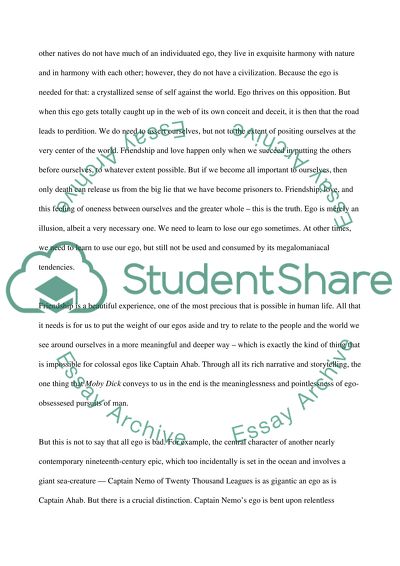Cite this document
(Men, Friendship and Companionship in Moby Dick by Herman Melville Literature review, n.d.)
Men, Friendship and Companionship in Moby Dick by Herman Melville Literature review. https://studentshare.org/literature/1502688-men-friendship-and-companionship-in-moby-dick-by-herman-melville
Men, Friendship and Companionship in Moby Dick by Herman Melville Literature review. https://studentshare.org/literature/1502688-men-friendship-and-companionship-in-moby-dick-by-herman-melville
(Men, Friendship and Companionship in Moby Dick by Herman Melville Literature Review)
Men, Friendship and Companionship in Moby Dick by Herman Melville Literature Review. https://studentshare.org/literature/1502688-men-friendship-and-companionship-in-moby-dick-by-herman-melville.
Men, Friendship and Companionship in Moby Dick by Herman Melville Literature Review. https://studentshare.org/literature/1502688-men-friendship-and-companionship-in-moby-dick-by-herman-melville.
“Men, Friendship and Companionship in Moby Dick by Herman Melville Literature Review”. https://studentshare.org/literature/1502688-men-friendship-and-companionship-in-moby-dick-by-herman-melville.


